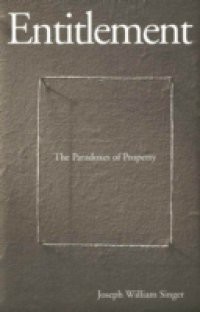In this important work of legal, political, and moral theory, Joseph William Singer offers a controversial new view of property and the entitlements and obligations of its owners. Singer argues against the conventional understanding that owners have the right to control their property as they see fit, with few limitations by government. Instead, property should be understood as a mode of organizing social relations, he says, and he explains the potent consequences of this idea.Singer focuses on the ways in which property law reflects and shapes social relationships. He contends that property is a matter not of right but of entitlementâand entitlement, in Singer’s work, is a complex accommodation of mutual claims. Property requires regulationâproperty is a system and not just an individual entitlement, and the system must support a form of social life that spreads wealth, promotes liberty, avoids undue concentration of power, and furthers justice. The author argues that owners have not only rights but obligations as wellâto other owners, to nonowners, and to the community as a whole. Those obligations ensure that property rights function to shape social relationships in ways that are both just and defensible.

